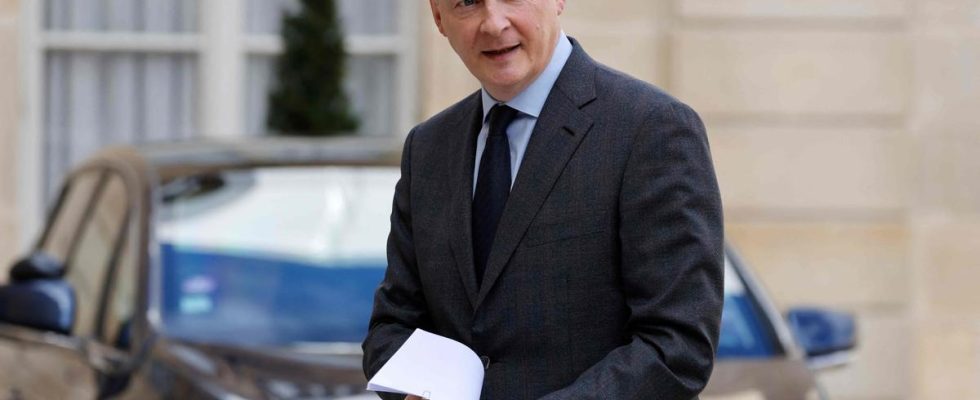Bruno Le Maire intends to launch the consolidation of public accounts. LUDOVIC MARIN / AFP
At 4.7% of GDP, the deficit is however improving compared to a forecast of 5%. The debt amounts to 111.6% and is approaching 3000 billion euros.
As France prepares to experience a new day of mobilization against the pension reform, INSEE unveiled its first estimate of the 2022 public accounts on Tuesday. As expected, they clearly bear the scars of the crises experienced in recent years. . The public deficit amounts to 4.7% of the Gross Domestic Product (GDP) and the debt to 111.6%, after respectively, in 2021, 6.5% and 112.8%. The country is thus inexorably approaching the symbolic milestone of 3,000 billion euros in debt, but, at 2,950 billion, it still has not crossed it.
As degraded as they are, these figures are rather good news at Bercy, because the ministry anticipated a more violent shock. The latest deficit estimates were 5%. Debt, for its part, was forecast at 111.5%. Growth was confirmed at 2.6%, after +6.8% in 2021 and -7.9% in 2020.
It is essentially inflation which, by supporting tax receipts, explains this discrepancy with forecasts. Last year, VAT receipts thus increased by nearly 9% compared to 2021. In January, the Minister Delegate for Public Accounts, Gabriel Attal, announced that the budget deficit for the year 2022 would be 151.5 billion euros, or 19.5 billion less than the forecasts included in the last amending finance law.
Ongoing Expenditure Review
“The resilience of our economy allows us to reduce the level of debt to 111.6% of GDP and to meet our public finance objective with a deficit below 5%.“Commented Bruno Le Maire on Tuesday. However, the Minister of Economy and Finance does not present this slight start as a victory. The boss of Bercy promises on the contrary to seriously tackle the recovery of public accounts in the next budget after the shocks of the pandemic and inflation. He must present in the coming weeks a review of expenditure which would identify several billion savings. Housing aid and brown tax expenditures, i.e. tax benefits favorable to fossil fuels, should in particular be put on a diet.
After years of procrastination between attempts to clean up finances and all-out spending during crises, the minister has tried to reaffirm a clear doctrine. “France suffers from a structural problem: we do not produce enough and we spend too muchhe described. Our strategy has always been the same: to ensure that public spending increases more slowly than public production“.
The government plans to present its new stability program around mid-April setting the trajectory of public finances for the coming years. It should take up the campaign’s objective of reducing the deficit to below 3% by 2027. It remains to be seen how the executive will manage to impose the idea of slowing spending in the current climate.
“data-script=”https://static.lefigaro.fr/widget-video/short-ttl/video/index.js” >
